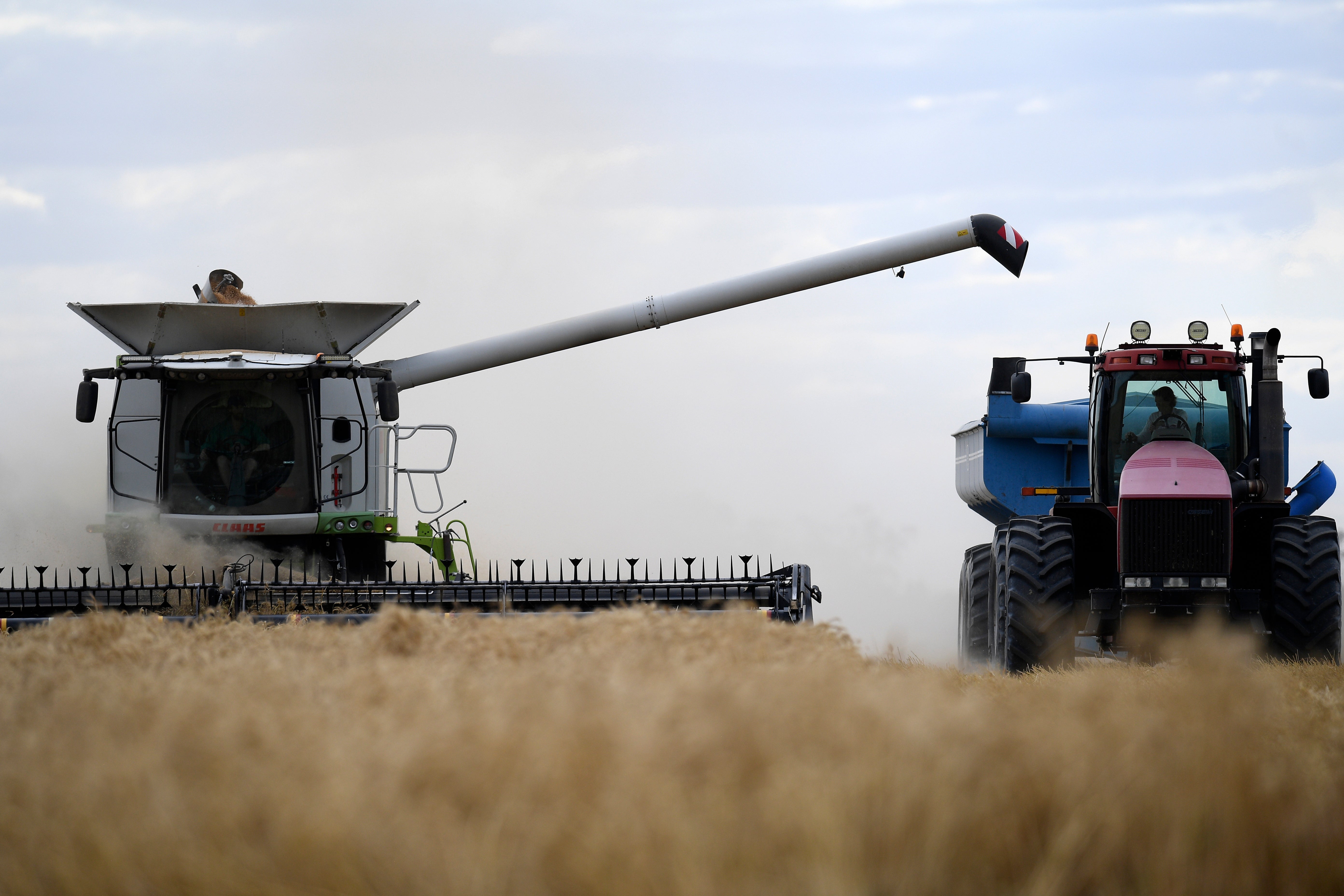China reopens trade in Australian barley in a new sign of improved relations
China is lifting a stifling 3-year-old tariff on Australian barley in a sign of an improving bilateral trade relationship since Australia’s government changed

Your support helps us to tell the story
From reproductive rights to climate change to Big Tech, The Independent is on the ground when the story is developing. Whether it's investigating the financials of Elon Musk's pro-Trump PAC or producing our latest documentary, 'The A Word', which shines a light on the American women fighting for reproductive rights, we know how important it is to parse out the facts from the messaging.
At such a critical moment in US history, we need reporters on the ground. Your donation allows us to keep sending journalists to speak to both sides of the story.
The Independent is trusted by Americans across the entire political spectrum. And unlike many other quality news outlets, we choose not to lock Americans out of our reporting and analysis with paywalls. We believe quality journalism should be available to everyone, paid for by those who can afford it.
Your support makes all the difference.China is lifting a stifling 3-year-old tariff on Australian barley starting Saturday — a sign of an improving bilateral trade relationship since Australia’s government changed.
China effectively closed its door to Australian barley in May 2020 by imposing an 80.5% tariff after the previous Australian government angered Beijing by calling for an independent inquiry into the origins of, and responses to, the COVID-19 pandemic.
On Friday, both governments confirmed the resumption of trade in the grain that was worth 916 million Australian dollars ($602 million) in the year before China blocked imports.
Australian Prime Minister Anthony Albanese welcomed the breakthrough, which comes as he plans his first visit to Beijing as government leader before the end of the year.
“This is a very positive decision,” Albanese told reporters.
When Albanese’s government was elected in May 2022, he demanded Beijing drop a series of official and unofficial trade barriers against Australian exports — including barley, wine, coal, beef, wood and seafood — that were costing producers $15 billion a year.
China’s Ministry of Commerce said in a statement it “ruled that in view of the changes in China’s barley market, it was unnecessary to continue to impose anti-dumping duties and countervailing duties on imported barley originating in Australia.”
The ministry gave no details of the decision, nor did it explain the market changes.
Australia has denied China’s claims that it subsidized barley and wine to export it at artificially low prices, a process known as dumping.
In April, Australia suspended a complaint to the World Trade Organization in a bid to reopen the Chinese market to barley. In exchange, China had agreed to review its duties on the grain.
With the barley trade reopened, the Australian government said it expects China will lift its trade barriers to Australian wine.
Australia’s complaint over wine remains before the Geneva-based WTO.
China is Australia’s biggest trading partner, with two-way trade totaling $287 billion in 2022.
___
Associated Press reporter Joe McDonald in Beijing contributed to this report.